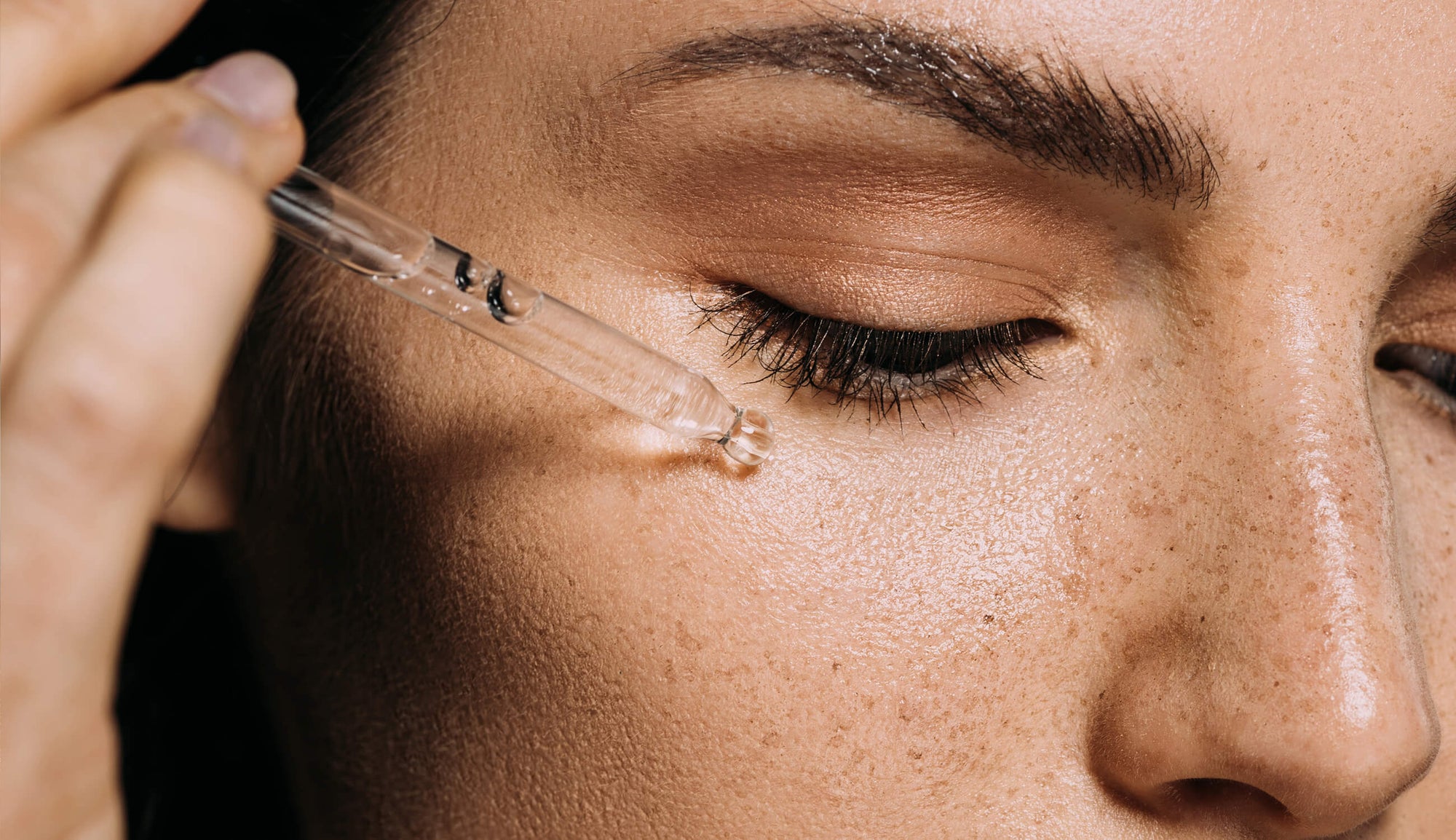If you've ever wondered whether washing off serum is necessary or leaving it overnight is beneficial, we've got you covered. Gain confidence in your skincare choices as we unravel the mysteries surrounding serum usage and provide expert insights for a radiant complexion.
No, you typically don't need to wash off serum. Allow it to absorb for a few minutes before applying other products. If it's a leave-on serum, leaving it overnight may enhance its benefits. Always check product instructions for specific guidance based on the serum's formulation.
From understanding absorption dynamics to debunking common misconceptions, we delve deeper into the intricacies of using serums for optimal skincare. Stay tuned for expert tips and guidelines that elevate your skincare routine.
What is a serum, and how does it work?
Understanding the concept of serums requires unraveling their intricate composition and mechanisms.
A serum is a skincare product that typically contains a higher concentration of active ingredients compared to other products like moisturizers or cleansers. These active ingredients may vary widely and are chosen for their specific benefits, such as hydration, anti-aging, brightening, or targeting particular skin concerns. Serums come in various formulations, including water-based, oil-based, or gel-like textures, and they are designed to be applied to the skin after cleansing and moisturizing.
Find our best selection of serums here.

The Science of Serum Absorption
The science behind serum absorption delves into the intricate processes that enable these skincare products to deliver targeted benefits to the skin. Serums are meticulously formulated with a focus on the molecular structure of their active ingredients. The skin, being a highly sophisticated organ, has layers that play distinct roles in the absorption process. Learn more about the science behind vitamin C serum.
At the forefront is the epidermis, the outermost layer of the skin, which predominantly absorbs water-based serums. These formulations often feature ingredients like hyaluronic acid, known for its ability to hydrate and plump the skin. The smaller molecular structures of water-based serums allow them to penetrate the epidermis efficiently, providing immediate benefits such as improved hydration.

Should You Wash Off Serum?
Washing off serum immediately is generally not recommended since it contains concentrated active ingredients. These ingredients address skincare concerns such as hydration, anti-aging, and brightening. Their effectiveness depends on being absorbed into the skin. These ingredients address skincare concerns such as hydration, anti-aging, and brightening. Their effectiveness depends on being absorbed into the skin. Washing off the serum too soon may hinder their ability to provide the intended benefits.
Formulators formulate serums to penetrate different layers of the skin. Water-based serums hydrate the outer layer, while oil-based or gel-based serums nourish deeper layers. Leaving the serum on the skin allows time for the absorption of active ingredients to initiate their targeted actions.
Follow the serum's instructions for the best results. Different serums have unique formulations that require specific application methods. Stick to the guidelines provided by the manufacturer for a healthy and radiant complexion.
Benefits of using a serum for your skin type
Our skin, the body's largest organ, requires careful attention and nourishment to maintain a healthy and radiant appearance. One powerful ally in achieving this is the use of serums tailored to your specific skin type.
Serums are designed with a variety of formulations, addressing specific skin concerns such as hydration, brightening, anti-aging, and more. Whether you have oily, dry, sensitive, or combination skin, there's a serum crafted to cater to your unique needs.
Find our collection of serums here.

Many serums are formulated to boost collagen production, a crucial protein responsible for maintaining skin elasticity and firmness. Regular use may contribute to a more youthful appearance by minimizing fine lines and wrinkles.
Serums seamlessly integrate into existing skincare routines. Whether you prefer a minimalist approach or an elaborate regimen, serums may be effortlessly incorporated, providing a targeted boost without disrupting your daily habits.
Due to their lightweight and liquid consistency, serums are quickly absorbed into the skin. This means you may enjoy almost instantaneous results, whether it's a boost of hydration, a brighter complexion, or a revitalized skin texture. Find more about the benefits of vitamin C serum for your skin.
How to apply serum correctly and effectively
Before applying any serum, ensure your face is thoroughly cleansed to remove impurities, excess oils, and any residue from previous skincare products. A clean canvas allows the active ingredients in the serum to penetrate the skin more effectively. Gently pat your face dry, leaving it slightly damp to enhance the absorption of the serum. Learn 5 ways to get the most out of your serum here.
A little goes a long way when it comes to serums. Dispense a small amount, usually a pea-sized drop, onto your fingertips. Remember, serums are highly concentrated, and applying too much may overwhelm the skin. Dot the serum evenly across your face, focusing on areas of concern. If you're using multiple serums, layer them from thinnest to thickest consistency to optimize absorption.

The application technique is as crucial as the serum itself. Instead of rubbing the serum into your skin, use gentle patting motions. This minimizes friction, reduces the risk of irritation, and promotes better absorption. Pay extra attention to areas where you want to target specific concerns, such as fine lines or dark spots. Allow the serum to fully absorb before moving on to your moisturizer and sunscreen, completing your skincare routine.
Common mistakes to avoid when using serum
The sequence in which you apply skincare products matters. One common blunder is misplacing the serum in your routine. Serums are typically applied before moisturizers and after cleansers. Applying a serum on top of a heavy moisturizer may create a barrier, hindering absorption. Ensure you layer products from thinnest to thickest consistency, allowing each to be absorbed properly for maximum efficacy.

Introducing a new serum without performing a patch test may be a risky oversight. Serums often contain potent active ingredients, and your skin may react differently to various formulations. Before applying a new serum to your entire face, patch-test it on a small, inconspicuous area to check for any adverse reactions. This precautionary step may prevent potential irritations and help you identify the right serum for your skin type. Learn 7 mistakes to avoid while using a serum.
Some serums, especially those targeting concerns like hyperpigmentation or aging, may make your skin more photosensitive. Failing to apply sunscreen as the final step in your morning routine may counteract the benefits of your serum and expose your skin to harmful UV rays. Always include a broad-spectrum SPF to shield your skin from sun damage and maintain the positive effects of your serum.

How often should you use serum, and when to change it
To determine how often to use a serum, consider the specific serum, skin type, and desired results. Most serums are for daily use but follow product instructions. Some serums may irritate and require less frequent use. Pay attention to the skin's reaction and adjust accordingly.
Re-evaluate your choice of serum every few months as your skin's needs change. Variety in your skincare routine may offer a broader range of benefits. If you've achieved your goals with a serum or notice changes in your skin, consider exploring new formulations. Also, check the expiration date to avoid irritation and ensure intended results.
To optimize the effectiveness of your serum, pay attention to your skin's response. If you experience adverse reactions, switch to a different serum or adjust the frequency. Skin needs change with seasons, lifestyle, and age, so adapt accordingly. Consult a skincare professional for personalized guidance on frequency and transitioning to new serums.
How to choose the best serum for your skin type and concern
Choosing the best serum begins with understanding your unique skin type and specific concerns. Assess whether your skin is oily, dry, sensitive, or a combination, as this will guide you in selecting a serum tailored to your needs. Recognizing your primary concerns, such as hydration, anti-aging, or brightening, further refines your search. For instance, those with dry skin may benefit from hydrating serums with ingredients like hyaluronic acid.
Choose a suitable serum by checking the ingredient list. For hydration, look for hyaluronic acid or glycerin. For anti-aging, go for retinoids, peptides, or vitamin C. For hyperpigmentation, try alpha arbutin or niacinamide. Understanding each ingredient helps you pick the best serum for your needs. Learn tips on how to choose the best face serums for oily skin here.

When choosing a serum, consider ingredients and formulation. Water-based for oily skin, creamier for dry skin. Check for allergens and irritants. Patch test new serums. Consult a dermatologist for guidance.
Conclusion
Serums aren't washed off and require a clean canvas to start. They're concentrated and cater to specific needs. Choose the right one for best results. The art of precisely layering serums, considering factors like consistency, targeted benefits, and individual skin types, ensures a seamless integration into a comprehensive skincare routine. Safety measures, such as patch testing and allergen awareness, underscore the importance of a thoughtful approach to serum application. In essence, serums, when applied methodically, become a transformative tool for achieving radiant and healthier skin.



